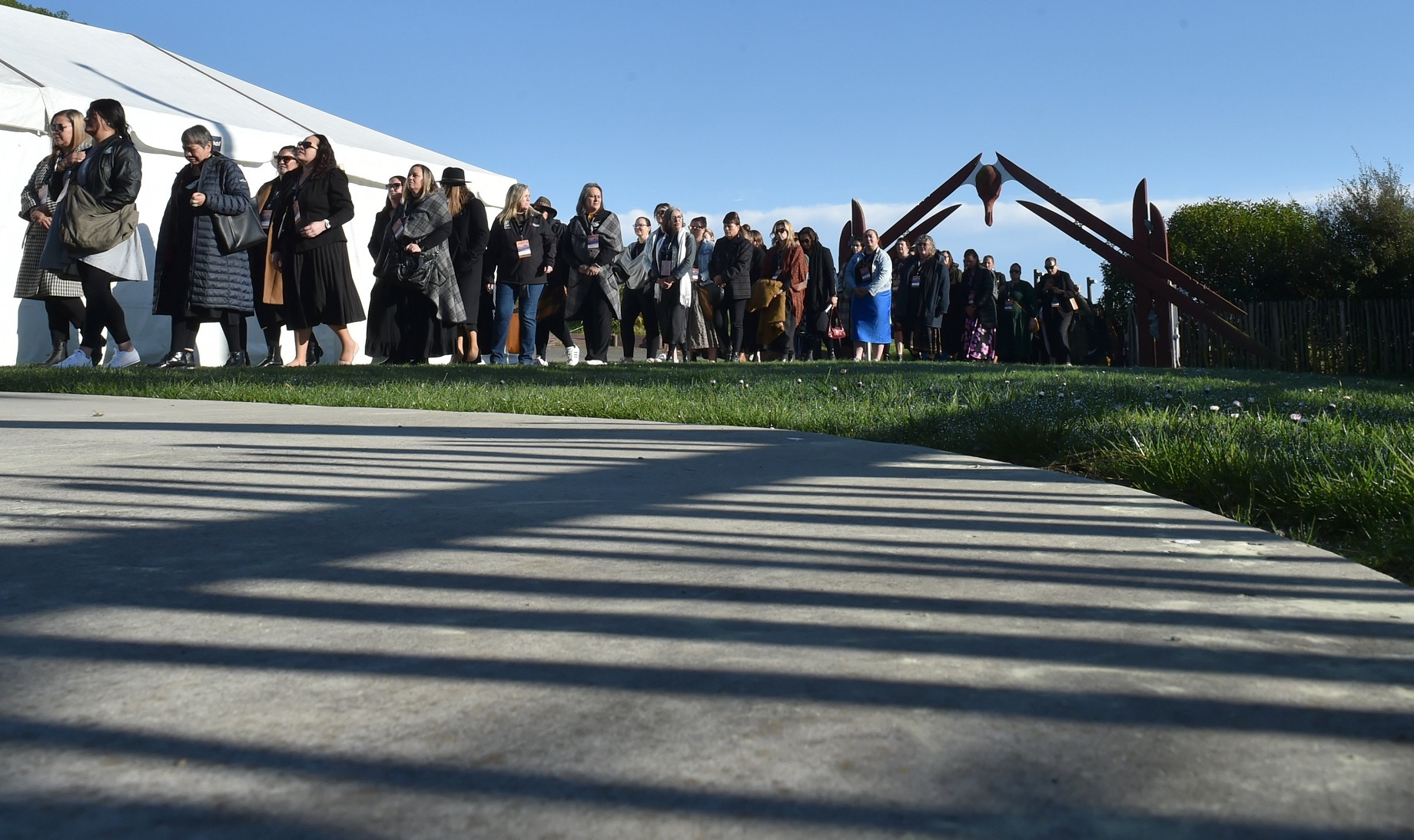
Puketeraki Marae welcomed Māori from all over New Zealand for the Te Akatea New Zealand Māori Principals’ Association’s annual national conference.
The three-day hui taumata conference included various speakers who discussed their work in relation to the theme: Ka whati te tai, ka pao te tōrea (when the tide recedes, the tōrea [oystercatcher] strikes).
The meaning is subjective, but to Manukura School principal Bruce Jepsen (Tūwharetoa, Ngāti Raukawa), it means to "strike while the iron is hot".
"We’re making determined decisions to resist colonial oppression, revitalise our reo and tikanga [customs] to return to the state of thriving that our tūpuna [ancestors] enjoyed.
"It’s the first time it’s been staged here in Te Waipounamu and for us that's significant, that marks the beginning of a new history.
"This is the largest Te Akatea conference we've ever had in our history, so its a great opportunity to bring ourselves together, to learn, to share, to be together and celebrate being Māori."
Te Akatea vice-president Stacey Tipa (Kāi Tahu) described the turn out as "phenomenal".
"All of these Māori leaders are coming here to understand the importance of the kaupapa and they get to see this beautiful place as well."
Therese Ford (Ngāi Takoto, Ngāti Kahu), who has her masters in educational leadership, said one theme they would explore was racism.
"We want our people, as a result of engaging in this collective learning, to understand racism better and have some ways to respond to that, because that is the reality of being a Māori leader, and being a Māori full stop."
A 2021 survey showed 93% of Māori experienced racism on a daily basis and Ms Ford hoped the conference would create a safe space for them to connect.
"This week gives them the opportunity to come out of that minority and be a part of a majority — and they'll tell you, that feels amazing. It’s inspiring, it’s uplifting and often it can be quite a transformation for some people. Life changing in some ways."
She explained the misconception that Māori were not capable of being successful without Pākehā.
"Our people were impressive. They had sophisticated knowledge systems that enabled us to thrive, not just survive, to thrive.
"And there's a greater acknowledgement of that now.
"What I love about that is I feel that our people are starting to believe in us again, and that's really, really important."











